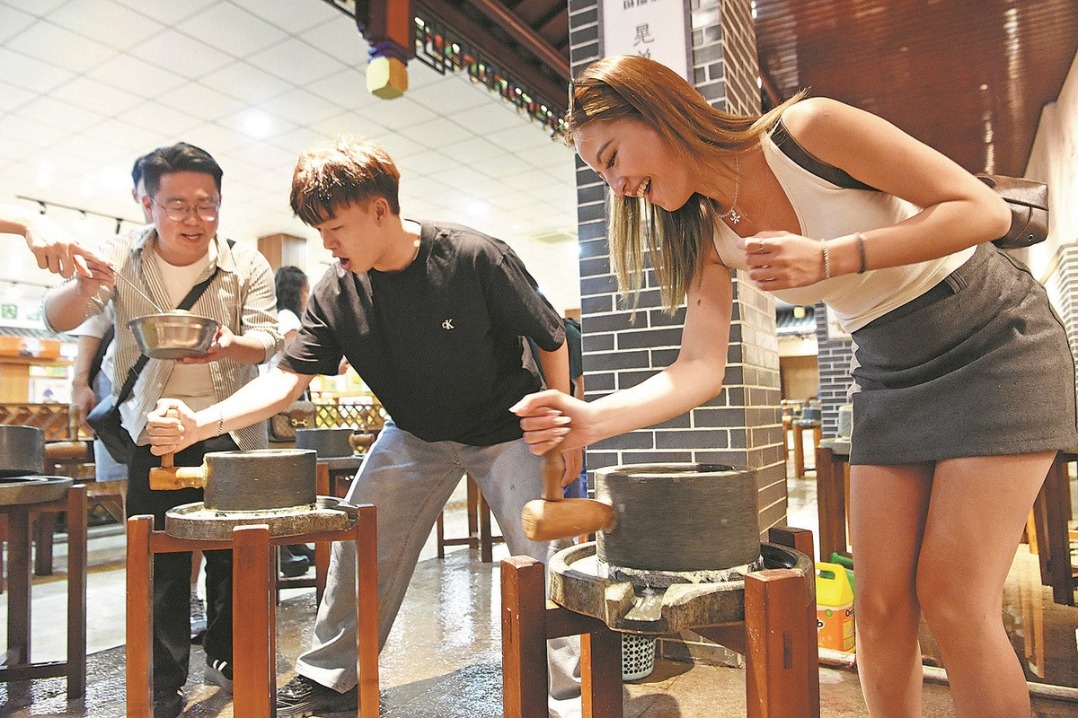Sahara salt diggers struggle to maintain age-old trade
China Daily Global | Updated: 2023-06-15 09:37

BILMA, Niger — At the edge of an oasis almost engulfed by dunes, where the rare caravan still passes, is a desert landscape punctured by holes.
The salt pans of Kalala, near Bilma in northeastern Niger, were once an essential stop for traders with their swaying lines of camels.
Salt digging, carried on from generation to generation, was a thriving business, involving a commodity so precious that it was bought and sold across the Sahara and beyond.
Today, in this isolated desert region plagued by armed gangs and smugglers, the diggers struggle to survive.
Over centuries, hundreds of pits have been dug by hand and then filled with water to leach salt from the local rock.
Standing in the black and ocher pits, Ibrahim Tagaji and a colleague were wrestling with a crowbar to harvest the bounty — a method of extraction that essentially remains unchanged over time.
Barefoot in brine swimming with crystals, the two men dug out salty chunks and pounded them into grains, which were then scooped out with a gourd. They then poured the salt into molds made from date palms, forming slabs that were then ready for sale.
It is punishingly hard work, rewarded by an income that fluctuates whenever buyers happen to pass through town.
"When someone with money comes, you earn a lot," Tagaji said between shovelfuls. "Otherwise, it's a lot of work and the money's poor."
But the local economy offers few alternatives, and roughly half of Bilma's population still work in the pits, local officials said.
Changed world
Unfortunately for Bilma, however, the world outside has changed.
"In the past, the caravans came — the Daza, the Hausa, the Tuareg," said Kiari Abari Chegou, a traditional authority called mai in the region, naming some ethnic groups in the region. "Now, it's not like before."
He said it made more sense to buy a slab of salt for $3.25 in Agadez, the regional capital 550 kilometers away, than to travel all the way to Bilma to bargain for it at one-third of the price.
"You make more money like that than tiring yourself out spending 10 days traveling to get to Bilma, then 10 days back."
The desert journey is as dangerous as it is tough.
The Kawar oasis borders Chad and Libya, a country ravaged by a civil war since 2011, and traffickers and other criminals take advantage of the region's porous borders.
"The bandits stop our trucks, they take our phones and money and then they let us through," said a driver who gave his name as Ahmed and was about to set off with sacks of salt.
Agencies via Xinhua
























